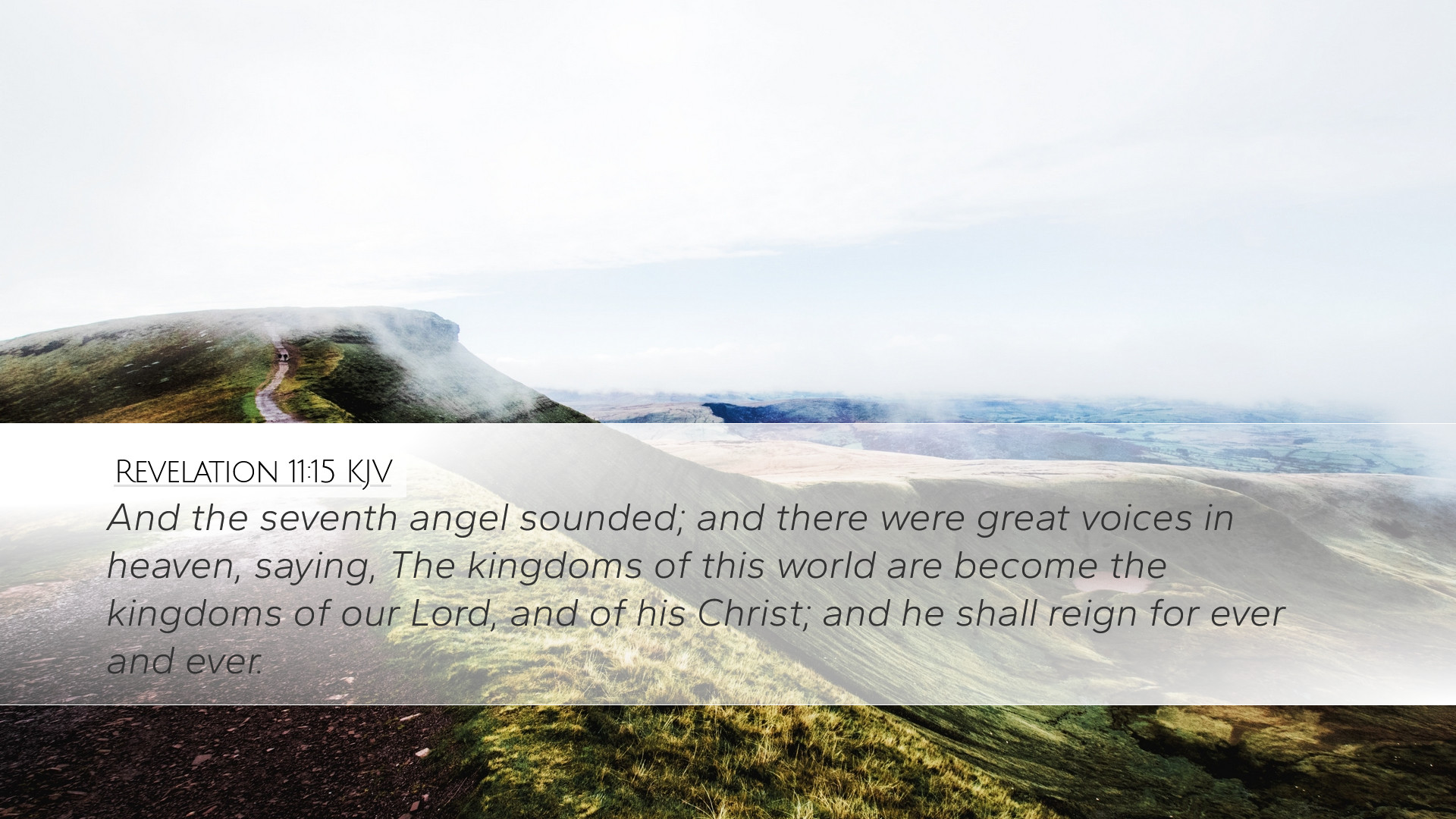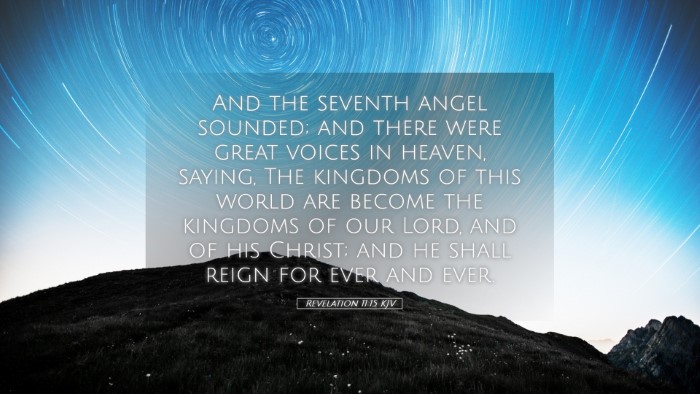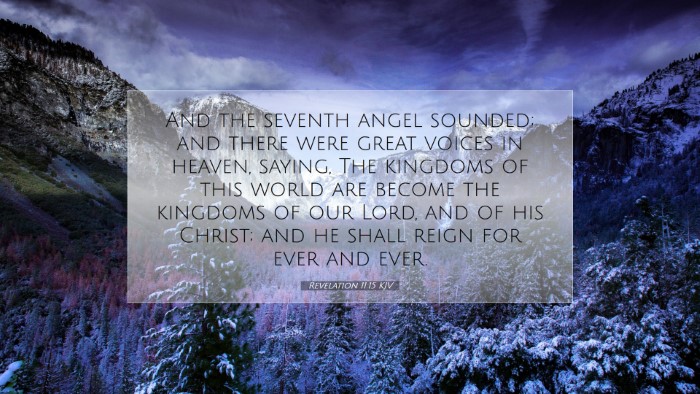Commentary on Revelation 11:15
Revelation 11:15 states, "The seventh angel sounded his trumpet, and there were loud voices in heaven, which said: 'The kingdom of the world has become the kingdom of our Lord and of his Messiah, and he will reign for ever and ever.'"
Contextual Overview
In the grandeur of apocalyptic literature, Revelation 11:15 crystallizes a pivotal moment in the eschatological narrative. This passage marks the conclusion of the trumpet judgments and initiates the proclamation of the Kingdom of God. As we explore this verse, it is essential to appreciate its place within the broader framework of Revelation, particularly in the context of hope, judgment, and the ultimate sovereignty of Christ.
Insights from Public Domain Commentaries
Matthew Henry's Commentary
Henry expounds that the sounding of the seventh trumpet heralds the final victory of God's kingdom. He emphasizes the significance of "loud voices" in heaven, which illustrate the joy and celebration of the celestial beings in response to divine intervention. The proclamation, highlighting the transition of the world’s kingdoms to Christ, serves as a reminder of God’s sovereignty. Henry notes that God's reign is eternal, contrasting the temporal nature of earthly kingdoms.
Albert Barnes' Notes on the Bible
Barnes provides a theological lens on the implications of this passage. He argues that the phrase "the kingdom of the world" signifies not just a political reality but a spiritual dominion under the authority of Christ. Barnes elaborates that this transformation indicates the culmination of God's redemptive plan through Christ's lordship. Additionally, he points out that this verse reinforces the concept of Christ's reign not only in the eschaton but also in the present, encouraging believers to live with the awareness of His authority amid worldly affairs.
Adam Clarke's Commentary
Clarke enhances the understanding of this verse by focusing on the prophetic nature of John's revelation. He suggests that the seventh trumpet announces the fulfillment of God's promises regarding the establishment of His kingdom. Clarke notes the joy that is expressed in heaven and relates this to the anticipation felt by the faithful. His commentary underscores the victorious aspect of Christ's reign and reassures believers of the ultimate triumph over evil, affirming that every conflict faced in this present age has an eschatological resolution.
Theological Implications
The announcement of the Kingdom’s establishment invites deeper theological reflection. It emphasizes God's sovereignty over history and the transformative power of Christ's reign. Several critical themes arise from this verse:
- The Sovereignty of God: The passage affirms that God's sovereignty prevails over all nations and rulers, a vital truth for those undergoing persecution or hardship.
- Hope for Believers: This proclamation offers hope, converting despair into expectation of God's justice and the eventual victory of good over evil.
- Eschatological Fulfillment: It points to the coming culmination of God's plans, urging believers to maintain faith as they await the restoration of all things.
- Call to Witness: The awareness of Christ's reign calls Christians to actively participate in His mission, sharing the Gospel and demonstrating His lordship in every aspect of life.
Conclusion
Revelation 11:15 reveals a jubilant declaration from Heaven that encapsulates the heart of Christian eschatological hope. The insights drawn from commentaries by Matthew Henry, Albert Barnes, and Adam Clarke encapsulate the profound theological truths that emerge from this passage. For pastors, students, and theologians, this verse not only serves as a reminder of the authority of Christ but also as a call to live in the light of His impending reign. The message is clear; although the world may seem chaotic, the reign of our Lord is assured forever. May this truth empower believers to carry forth the Gospel with vigor, awaiting the fulfillment of God's ultimate plan.


